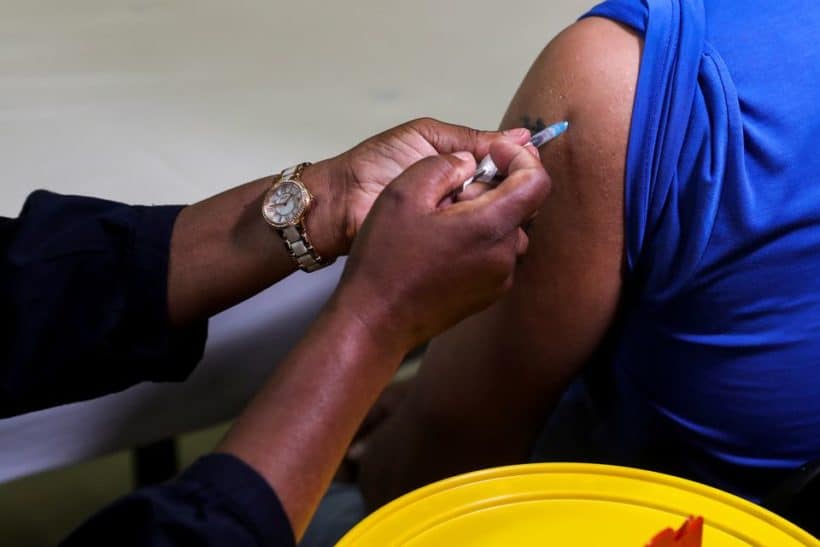
JOHANNESBURG, Jan 11 (Reuters) – Preliminary findings from two South African clinical trials suggest the Omicron coronavirus variant has a much higher rate of “asymptomatic carriage” than earlier variants, which could explain why it has spread so rapidly across the globe.
The studies – one of which was carried out when Omicron infections were surging in South Africa last month and another which resampled participants around the same time – found a far greater number of people tested positive for the coronavirus but were not showing symptoms compared to previous trials.
In the Ubuntu study evaluating the efficacy of Moderna’s COVID-19 vaccine in people living with HIV, 31% of 230 participants undergoing screening tested positive, with all 56 samples available for sequencing analysis verified to be Omicron.
“This is in stark contrast to the positivity rate pre-Omicron, which ranged from less than 1% to 2.4%,” the researchers said in a statement.
Read more: Omicron poses “very high” global risk, world must prepare -WHO
In a subgroup of the Sisonke trial evaluating the efficacy of Johnson & Johnson’s COVID-19 vaccine, the mean asymptomatic carriage rate rose to 16% during the Omicron period from 2.6% during the Beta and Delta outbreaks.
“The Sisonke study included 577 subjects previously vaccinated, … with results suggesting a high carriage rate even in those known to be vaccinated,” the researchers said.
They added that the “higher asymptomatic carriage rate is likely a major factor in the rapid and widespread dissemination of the variant, even among populations with high prior rates of coronavirus infection”.
South Africa experienced a surge in COVID-19 infections from late November, around the time its scientists alerted the world to Omicron. But new cases have since fallen back and early indications are that the wave has been marked by less serious disease than earlier ones.
(Reporting by Alexander Winning, editing by Ed Osmond)